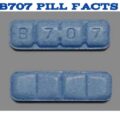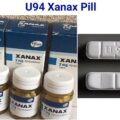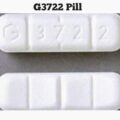It all started with a Percocet prescription 4 years ago. One night, while working as a nurse in one of the busiest emergency departments in Philadelphia, I was exposed to meningitis. Coincidentally, I became very ill a couple of days later with persistent high fevers. Finally deciding to seek medical attention, I underwent a lumbar puncture, which fortunately came back negative. However, the following morning, I awoke with an indescribable positional headache that prevented me from functioning in any capacity. Returning to the emergency department, I was diagnosed with a spinal headache as a result of my lumbar puncture. I was discharged home with a prescription for Percocet, instructed to take caffeine, and told that it should resolve in a few days. While the Percocet did not relieve the positional headache, they made it easier to deal with because of the feeling they gave me.
After taking Percocet every 4 h around the clock and being incapacitated for 2 weeks without resolution of the headache, I returned to the emergency department and subsequently received a blood patch. The headache was instantly cured. But I continued to take the Percocet.
The best way I can describe the feeling I had when taking the Percocet is that all was right with the world. I felt that I could function at a higher level, and that I had more energy and motivation. Stressful situations seemed easily manageable, and I felt more focused on whatever I happened to be doing. I did not perceive that anything was wrong with taking the Percocet after the reason it was prescribed had resolved, because after all, they had been prescribed to me. Maybe I did know better, but the feeling I received from the medication pushed any questions I might have had out of my head.
I returned to work shortly thereafter and I was continuing to take the remainder of my prescription, as prescribed, around the clock. I did not believe that I was being affected negatively in any way by the Percocet, but instead the opposite, as I felt more confident at work and I was able to do a better job. I was able to perform my work without difficulty and met the high standards that were required. However, after about a week my Percocet prescription ran out.
Soon after, I began to feel down, tired, and that I was not able to perform my job at optimally. I craved the feeling that I had while taking Percocet because I felt it made me an overall better person. Being a nurse, I had easy access to a multitude of drugs and Percocet was only one of many controlled substances that passed through my hands every night at work in the emergency department. Because of the scrutiny that narcotic counts are under, I had to devise a plan to be able to acquire some without being flagged, and that is when the deceit began. I became preoccupied with obtaining opioids, and patient care took a back burner.
Because I was an experienced nurse, I was not questioned when I asked another nurse to witness a waste with me in the Pyxis (a two-person documentation system for disposing of controlled substances that were not administered to patients). I was able to have a nurse witness a waste with me, and then in turn pocket the excess medication instead of disposing of it. This was the beginning of the medication diversion. When I initially began diverting, I told myself that I would only do it for oral medications and never for an injectable. Only drug addicts inject medications, and I was definitely not a drug addict. Instead, I provided medical care to drug addicts, and I was nothing like them.
Before long, the Percocet was no longer giving me the feeling that it had initially. And, I was unable to divert enough of it for personal use without raising suspicion, so I started doing the same for all oral opioid analgesics that I could, including codeine and morphine. This helped briefly, however soon, I found myself in the same predicament as before, with the desired effect no longer attainable. I realized that I had been walking around night after night at work with partially used ampules of morphine that, until then, I had been properly disposing of. It was at this time that I decided to amend my previous rule of only taking oral medications. I deluded myself into thinking that injecting morphine intramuscularly or subcutaneously really was not that bad, especially because I had the knowledge and resources to always do it cleanly. I began diverting morphine in the same manner as I had the oral opioids.
Tolerance again came into play quickly, and I required higher doses to attempt to achieve the same effect. However, the effect that I had once strived for was no longer attainable, and instead I was dosing only so I could function normally. When I was not able use opioids, I began feeling ill, tired, and unfocused; my body started cramping and I was not able to function. At this point, I think of what had been lurking in the back of my head but I had successfully ignored was that I might have had a problem but I was not ready to come to terms with the fact that I was an addict..
Rather than taking action, I continued to divert morphine as I had been, and the amount that I needed to maintain my perceived functional status kept increasing as well. The necessity for the opioids and the quantity needed at that point well outweighed what could have ever been justified as just being leftover from patient administration. I began removing morphine from the Pyxis in a manner that I knew would sooner or later come up on a report and I would be questioned about it. There was a definite fear building up in me that started when I initially began diverting Percocet, and it had grown into a monster, but I saw no alternative.
The day finally came when I was called into my manager’s office and I was informed that I had been flagged on the narcotics report. I was asked if I had a problem, and was offered help. Even though I knew the truth of my addiction, I was not ready to admit it to myself or anyone else. Instead, I did what I had been doing since the beginning—I lied. I had an excuse for almost every opioid withdrawal but they were not believed. I was terminated from my job. And, I was reported to the state board of nursing for narcotic diversion.
It was at this point that the slippery slope became a lot steeper. I was crippled with fear of losing my nursing license, family, friends, and girlfriend. But I still was not ready to admit the obvious truth. I saw no way out but to keep lying. I blamed everyone else and stated that my job termination was an error. When I lost my job, I also lost my source of opioids. I could not stand the withdrawal symptoms or the empty feeling of being unmedicated. I immediately started looking for another nursing job before the nursing board caught up with me and took action on my license.
I quickly obtained an agency job and a part-time emergency department position without disclosing my recent termination. I was convinced that my nursing career and life as I knew it would soon be over, so I began diverting opioids in quantities that I knew would be discovered sooner than later without caution. I no longer had pleasure in using opiates; rather I used them so that I would not have to face the truth. At that point, I amended my rule for the last time, justifying in my head that injecting the medications intravenously was not too bad because I was always using medications that only I had handled and doing it cleanly. I needed to do it intravenously, as IM and SC were no longer getting me back to baseline. Morphine became a thing of the past and I primarily started using Dilaudid due to its potency and my misconception that it would be easier to cover up.
Within 3 months at my agency job my actions had been discovered. When I was called into the office and sat down with my agency supervisor and the hospital administrator, I initially tried to lie my way out of it, however I quickly broke down into tears, and for the first time the words “I have a problem” came out of my mouth. While I was still terminated, I was shown support and given information regarding the state monitoring program. I was told to immediately call up and self-report, as that would make things easier down the road, otherwise they would make the call. I assured them I would; however, I never did.
Even though I still retained my other part time job, shifts were scarce. Alcohol became my primary remedy for escaping reality and I began drinking around the clock, essentially never being sober. The specific altering substance no longer mattered, as long as it helped me avoid reality. I felt I was spinning out of control, with no chance of returning to any sense of normalcy. The guilt and shame were so severe that I could not possibly ask for help, and I continued to lie to everyone close to me. I would not answer my phone or and check the mail, as I knew the nursing board was attempting to contact me, and if I avoided them, maybe everything would just go away. Of course I knew better.
After 3 months of unemployment and excessive alcohol, I was well into debt, with creditors calling daily. I finally obtained a few shifts at my part time job and managed to sober up enough to go into the hospital. The first time I went in, I was suffering from alcohol withdrawal and severe shakes so I headed straight for the Pyxis, seeking out strong opioids. Going to the bathroom, I immediately injected Dilaudid and found instant relief. Not only did I pick up where I left off months earlier, I needed rapidly increasing doses in quantity and frequency. On days that I was not working, I continued to mask the withdrawal symptoms with alcohol. Because I was so sick with my addiction, I was able to rationalize anything. I though it to be reprehensible to go into work with any amount of alcohol on board, so I would time my last drink so that I thought my blood alcohol level was zero by the time I went into work. However, as soon as I arrived at work I would dash to the Pyxis before my shift and withdraw drugs.
Soon, there was no avoiding the reality of the situation, no matter how much alcohol or opioids I used. I lost my final job, received a DUI with an extremely high blood alcohol level and my nursing license was suspended pending investigation. Not working as a nurse any longer, I turned solely to alcohol, and even though I had openly admitted that I had a problem, I continued to drink, not knowing how to stop. It took almost two more months before I finally entered a drug and alcohol rehabilitation facility.
While in rehab, I strived to excel, and I said and did all of the right things. I enrolled in the Pennsylvania Peer Nurse Assistance Program (PNAP), the state monitoring program for nurses, to save my nursing license. However, I had not fully given up, as when it came time to be discharge after 28 days, I was not ready to follow all of their recommendations for continuing treatment in a long-term sober-living facility. Instead, I returned home, saying that I would do outpatient treatment and that I had a handle on the situation, even though in doing so I knew that I would be in violation of my PNAP contract as I would not be following treatment provider recommendations. I lasted 9 days before I was drunk again. Only at that point did I fully give up, returning to rehab, admitting that I was powerless, that I did not know what was best for me, and that I would do whatever I was told because I wanted my life back.
I have been sober for more than 2 years, 8 months to date. The road to this point was not an easy one; I created mass destruction when I was in active addiction, with my personal relationships, my career, and professional relationships, financially, and with my personal health. Getting sober enabled me to take responsibility for my past actions and begin to repair the damage. My heart no longer races every time my phone rings and I no longer live in fear, which is something I had not known for a long time.
I have developed a recovery support network and I remain enrolled in the nurse monitoring program. Rather than just revoking my nursing license permanently, PNAP has given me a second chance at being a nurse. While the terms of the program are strict, they have to be to ensure the safety of patients and other professionals, and the program is in place because they want to see nurses succeed. PNAP did not put me in this position—I did. While becoming an addict might have happened regardless of whether I was in healthcare, I firmly believe that being a nurse allowed it to grow out of control with easy access to drugs and the ability to rationalize my actions. The initial Percocet prescription gave it a jumpstart.
Today, I continue to face problems and challenges but I have a different perspective My nursing credentials are being reestablished in a nonclinical position and I am able to utilize my potential. I hope to return to clinical nursing at the completion of the monitoring program and I am optimistic for my future.
Anonymous
This Story First Appeared in Journal Of Medical Toxicology
NOTE: Percocet is a strong pain reliever most often prescribed for intense, short-term pain felt after surgery or trauma, but it is also sometimes used for patients with severe chronic pain. Percocet is often seen as a safer way to get high because it is legal to purchase (it is available with a prescription). However, Percocet is still widely abused for its narcotic effect. A high enough dose can result in a sense of euphoria similar to that experienced by heroin users. Abuse of Percocet can lead to addiction to Percocet or to something harder. SEE: Molly Percocet





